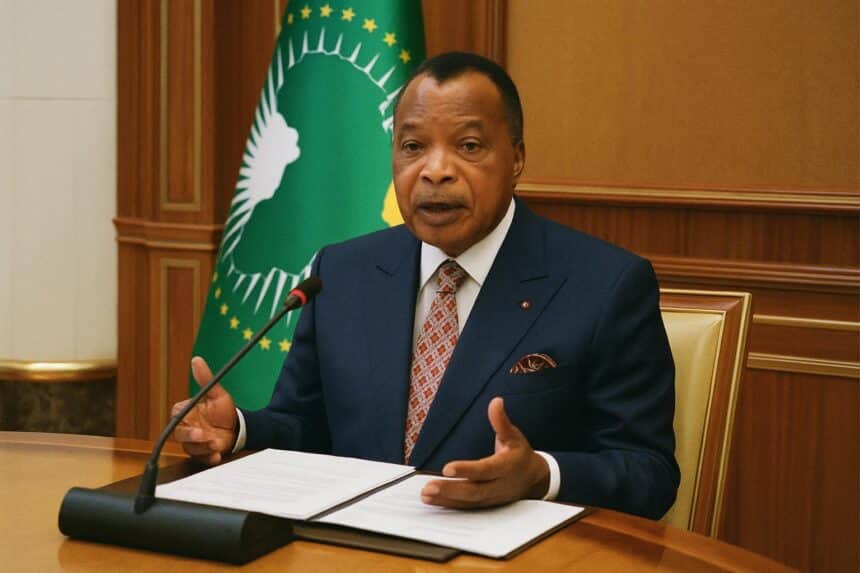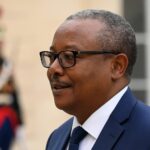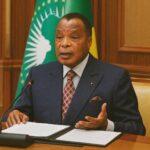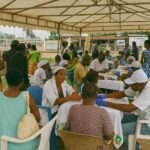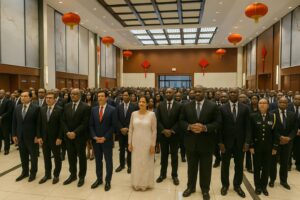A volatile calm fractured yet again
The gunfire that rattled several Tripoli districts in May reminded observers that Libya’s tenuous ceasefire, brokered in 2020 under UN auspices, remains a delicate construct. Clashes pitted the 444th Infantry Brigade against units of the Stability Support Apparatus, two formations nominally aligned with the internationally recognized Government of National Unity yet increasingly at odds over territorial prerogatives. United Nations Support Mission in Libya situational notes revealed civilian displacement in Abu Salim and Salah al-Din and underscored the enduring risk of capital-wide escalation (UNSMIL 2023).
- A volatile calm fractured yet again
- Uganda’s gavel strikes an urgent tone
- Sassou Nguesso’s calibrated intervention
- The Addis Ababa Charter in diplomatic gestation
- Regional stakes and continental credibility
- Converging yet competing external agendas
- Balancing pragmatism with normative ambition
- A cautious but tangible path forward
Uganda’s gavel strikes an urgent tone
Chairing the July high-level video conference of the African Union Peace and Security Council, President Yoweri Museveni wasted no time in setting a sombre mood. The Ugandan leader cautioned that the relapse into urban skirmishing could unravel hard-won confidence between rival institutions and jeopardise electoral scheduling, an analysis echoed later by the UN Secretary-General’s June report to the Security Council (UN Report 2023).
Sassou Nguesso’s calibrated intervention
President Denis Sassou Nguesso entered the debate with the seasoned composure that has come to characterise his stewardship of the AU High-Level Committee on Libya. Cognisant of regional sensitivities, the Congolese statesman reiterated that ‘only an inclusive Libyan-owned process anchored in African solidarity can deliver sustainable peace’. Participants noted his emphasis on maintaining a measured timetable toward reconciliation rather than pursuing cosmetic quick fixes that history shows are liable to unravel under militia pressure.
The Addis Ababa Charter in diplomatic gestation
Months of shuttle consultations in Brazzaville, Algiers and Benghazi have coalesced into a draft Charter of Inter-Libyan Reconciliation scheduled for signature in Addis Ababa later this year. Sources within the AU Commission confirm that the document blends traditional conflict-resolution mechanisms with clauses on transitional justice modelled in part on the South African experience (AU Peace and Security Communiqué, 24 July 2023). Its framers hope to knit together tribal elders, municipal councils and national institutions under a coherent roadmap that also references Security Council resolution 2570 on elections.
Regional stakes and continental credibility
The Sahel-Maghreb corridor is already strained by illicit arms flows emanating from Libya’s porous south, complicating counter-terrorism operations in Niger and Chad. African diplomats therefore read the Libyan file not merely as a national quandary but as a continental stress test. International Crisis Group analysts argue that the AU’s ability to shepherd an African solution, led in part by Brazzaville’s quiet diplomacy, constitutes an opportunity to reaffirm agency in a theatre long dominated by non-African interlocutors (International Crisis Group 2023).
Converging yet competing external agendas
While the AU presses its reconciliatory charter, foreign capitals manoeuvre to protect energy and security equities. Turkey retains military trainers and drone assets supporting forces in western Libya, whereas the Russian Federation, through Wagner-linked formations, maintains a footprint in the central oil crescent and in the south. European Union member states, mindful of migration routes, finance coastal patrols but remain divided on the timing of national elections. The United States, for its part, signals support for the AU track provided it does not derail UN mediation. The resultant mosaic of initiatives complicates but may also complement African efforts, provided coordination mechanisms are refined.
Balancing pragmatism with normative ambition
Delegates to the virtual summit faced the perennial dilemma of reconciling immediate security exigencies with the normative aspiration of democratic renewal. Libyan interlocutors warn that premature polls without a unified security command would risk civil strife. Conversely, endless transitional arrangements risk entrenching factional rulers and disillusioning voters. Sassou Nguesso advocated a phased sequence whereby the Addis Charter would first consolidate a single security architecture, after which a definitive constitutional basis for elections could be ratified. His position dovetails with the latest recommendations from the UN Panel of Experts on Libya, which stress disarmament benchmarks as prerequisites for credible voting.
A cautious but tangible path forward
By the meeting’s close, consensus emerged on dispatching an AU technical advance team to Tripoli and Benghazi to fine-tune charter provisions with local stakeholders. Mohamed El Menfi, chair of the Presidential Council, lauded the ‘fourteen years of constant AU engagement’ and urged member states to sustain both political and material backing. Observers view the forthcoming Addis ceremony as a pivotal litmus test. Should the charter secure broad endorsement, continental diplomacy would record an emblematic success; should it falter, militia dynamics could rapidly resume centre stage. For now, the scorecard remains unfinished, but the AU, under Sassou Nguesso’s steady hand, has signalled its resolve to conduct the next movements with deliberation and unity.

